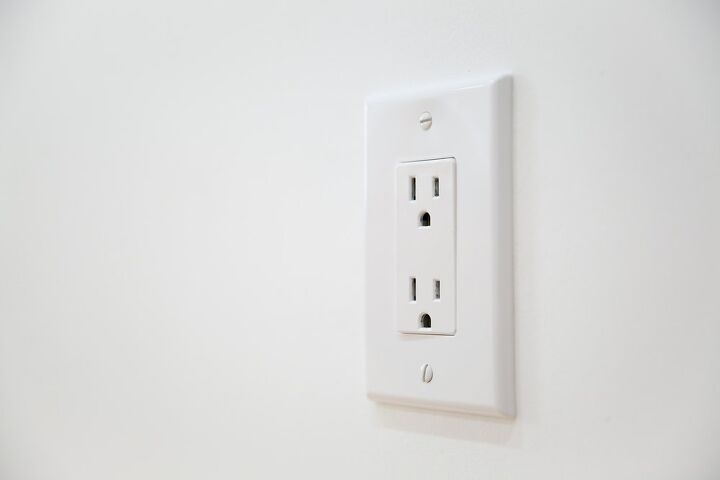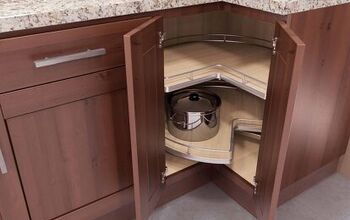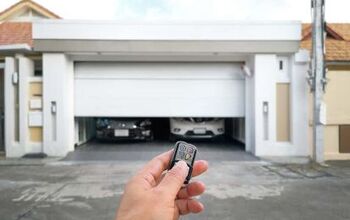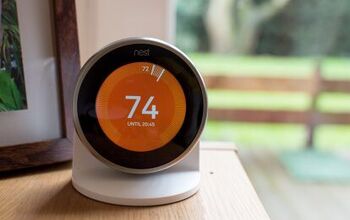What Is A Self-Grounding Outlet?

Before GFCIs and self-grounding electrical outlets, there were a lot more individuals getting electrocuted by rogue currents. But now, it’s very rare for such an event to happen, mainly because of the two devices above.
Most people are familiar with GFCIs, and even those who don’t know what these are have probably seen them before on outlets. It’s self-grounding electrical outlets that are less common, and this article will give some background on what these are, why they’re preferred, and what homeowners should know before installing them.
A self-grounding outlet is a type of outlet that is specifically designed to prevent rogue currents. It’s similar to a GFCI, though some say the self-grounding outlet is more complicated. A self-grounding outlet has to fulfill certain requirements to be code compliant, and these outlets are not legal everywhere. To install one, call a professional electrician.
Do You Need to Hire an Electrician?
Get free, zero-commitment quotes from pro contractors near you.

What Is a Self-Grounding Outlet?
These days, self-grounding outlets are used to protect individuals—and pets too—from rogue currents. Most building codes require some kind of rogue current protection, and ground fault circuit interrupters (GFCI) and self-grounding outlets are two protective devices that have stood the test of time.
However, neither device is going to protect an individual from electrocution if they misuse an outlet. For example, if you stick a fork in an outlet, a GFCI won’t prevent you from being electrocuted. Similarly, if you were to stick something metallic in a self-grounding outlet, the result could be deadly.
But how can one tell these two protective devices apart? Moreover, what does a self-grounding outlet do that a GFCI doesn’t?
How Is a Self-Grounding Outlet Identified?
You can tell an outlet is a self-grounding outlet if it has a pair of vertical slits that are less than 1″ apart. There’s a round hole directly under the slits, and this is for the ground. Without this, the electrical circuit could not be complete.
What Does a Self-Grounding Outlet Do?
A self-grounding outlet works just like a standard outlet. The outlet is connected to a main electrical box. When an electrical device’s wire is connected to the outlet, the electricity from the main box goes to the device and powers it. Self-grounding outlets are often found in homes, but they can be used in businesses as well.
What Are the Benefits of Using a Self-Grounding Outlet?
Cost-Effective & Versatile
Since self-grounding outlets utilize fewer components than GFCI-enabled outlets, self-grounding outlets are more cost-effective. They’re also versatile, especially when a ground wire terminal is provided. This will come in handy if you have to use a ground tail.
Self-grounding outlets offer versatility, reliability, and safety all for an affordable price. No wonder homes and businesses are using these outlets more.
Less Labor Required
There’s no need to install ground tails for each individual outlet. You can use only self-grounding outlets in your home and not have to worry about being non-compliant.
However, this kind of setup is strictly a matter of preference. Most electricians like to install ground tails wherever possible.
Just because using self-grounding outlets by themselves is code compliant doesn’t mean that it’s the safest option. Being up to code is the minimum, and most electricians like to add more safety. Such is where the ground tails come in.
Are Self-Grounding Outlets Safe?
Yes, self-grounding outlets are safe. In fact, their whole purpose for being is to provide a layer of protection against rogue currents. Non-grounded outlets, on the other hand, can send rogue currents to the ground, where they can make contact with humans and cause electrocutions.
When Should Self-Grounding Outlets Be Avoided?
There are instances when using just a self-grounding outlet by itself is not a good idea, and these instances are detailed below. Moreover, there are instances when ground tales will be needed
Because they’re equipped with ground terminals, you can pretty much use self-grounding outlets anywhere. Remember that there must be a continuous ground path from the branch circuit to the outlet. You can use EMT conduit, Rigid conduit, or AC cable to connect these two points.
Avoid the Following
Romex or NM Cable: Because these cables have rubber sheathing, you can’t use them to create a continuous ground path from a panel to an outlet box. And remember that even if a non-metallic cable is inserted into a metal box, since the cable doesn’t reach the panel, you’ll need to make use of the ground wire that always comes with Romax cable.
Plastic Box: Can a self-grounding outlet be attached to a plastic box? Yes, but this configuration wouldn’t be efficient in itself. To make this an efficient configuration, one would need non-metallic cable and a ground wire.
Can Self-Grounding Outlets Be Installed in Old Homes?
Provided they’re code compliant where you live, you can install self-grounding outlets in an old home. But making a non-grounded outlet—the outlet that only has two slits—a self-grounding outlet is a more difficult job. The head of the main screw is too small to do this, and the only place an additional screw might go is right between the wires, leaving not much space left over.
If you’re looking to change outlets in an old home, contact a professional electrician. They’ll know whether self-grounding outlets are feasible or not.
Are Self-Grounding Outlets Legal Everywhere?
While self-grounding outlets are protective devices, a self-grounding outlet must meet certain requirements in order to be deemed code compliant. Moreover, self-grounding outlets are not legal everywhere, and one must know this before they go ahead with an installation.
Again, it’s in this instance where having a professional electrician would be helpful, as they’d know whether or not self-grounding outlets are legal in your area. Or they’d know what needs to be done to make an outlet code compliant.
Do You Need to Hire an Electrician?
Get free, zero-commitment quotes from pro contractors near you.

Related Questions
Where can self-grounding outlets be purchased?
Self-grounding outlets can be purchased at local hardware stores, big box stores, or online stores like Amazon. Or, of course, you could get an electrician to purchase and install this for you.

Matt loves everything DIY. He has been learning and practicing different trades since he was a kid, and he's often the first one called when a friend or family member needs a helping hand at home. Matt loves to work with wood and stone, and landscaping is by far his most favorite pastime.
More by Matthew Mountain



























